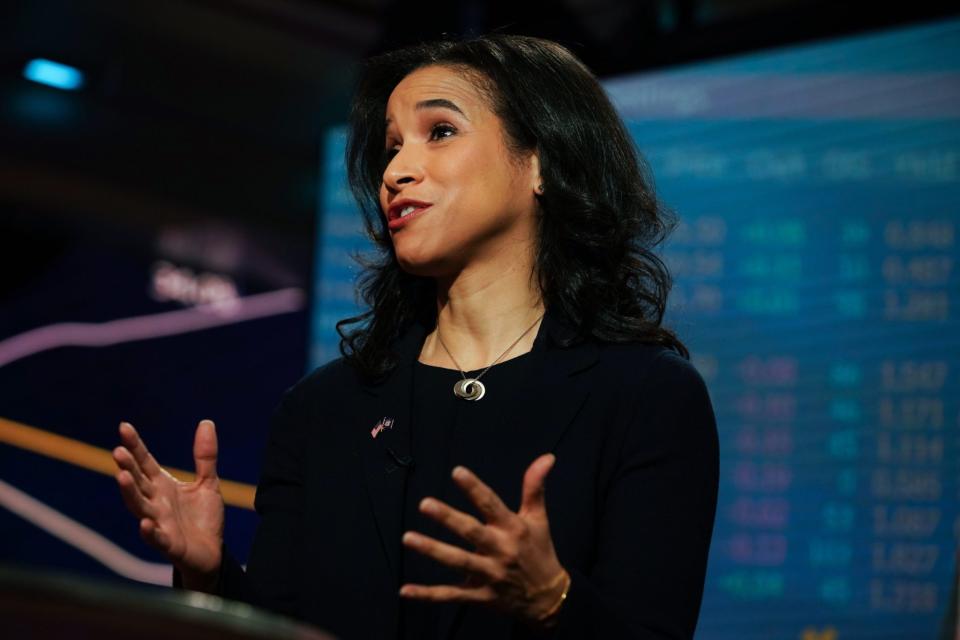Top New York regulator Adrienne Harris optimistic about a federal stablecoin deal—but not at the expense of state authority

As Congress continues to debate the future of crypto regulation, one state regulator is waiting for the federal government to catch up. The New York Department of Financial Services established a comprehensive framework to supervise the wildcat industry in 2015, and now its superintendent, Adrienne Harris, wants to ensure that the DFS' authority remains intact.
Speaking at Fortune's Future of Finance conference in New York on Thursday, Harris said she has advocated for legislation in Washington, specifically surrounding the key blockchain sector of stablecoins, though she's also lobbied for bills to maintain a strong role for states like New York.
"To take that all away so that the federal government can then just start from scratch both would lead to real chaos in the industry, but also just abandons almost a decade of expertise and good work by the DFS," Harris said onstage.
As DFS has introduced guidance and licensing around stablecoins, including approval last December for the firm Paxos to issue its products on the popular blockchain Solana, lawmakers in D.C. have stalled on passing new legislation.
While the House Financial Services Committee advanced a bill last July, it was largely driven by Republican members, with a deal between Chair Patrick McHenry (R-N.C.) and ranking member Maxine Waters (D-Calif.) long in the works. The protection of state oversight remains a wedge issue between the two powerful legislators, with the White House reportedly pushing for a higher federal regulatory floor.
The debate has created atypical political alliances, with state regulators like Harris arguing to protect state's rights to regulation, and Democratic members of the New York delegation—including Congressman Ritchie Torres—breaking ranks with the majority of the party. In recent weeks, with Democrats and Republicans closer to a deal in both the House and Senate, Harris has taken an active role speaking with other New York Democratic lawmakers, including Senate Majority Leader Chuck Schumer.
"We have a dual regulatory system where both federal regulators and state regulators play a role," Harris said on Thursday. "In this case, it's particularly important because New York knows how to do this very, very well."
She added that she's optimistic that Democrats and Republicans will hammer out an agreement thanks to the work of Schumer and other legislators. "I think we will see a deal come in the near future," Harris said.
As DFS superintendent, Harris's portfolio extends beyond crypto to other sectors such as insurance and banking, like in March 2023 when her department took over the failing Signature Bank. While she's sounded the alarm on risks posed by banks' exposure to commercial estate, Harris said that federal and state regulators are watching the sector closely. "I feel good about our banks," she said.
Still, she argued that Signature illustrated how mobile banking has facilitated more rapid withdrawals, with 20% of deposits leaving the institution in four hours. "We've never seen something like that before," Harris added. "It's time for us to update how we think about liquidity and liquidity regulations, because technology has changed since the financial crisis when those regulations were last looked at."
This story was originally featured on Fortune.com

 Yahoo Finance
Yahoo Finance 